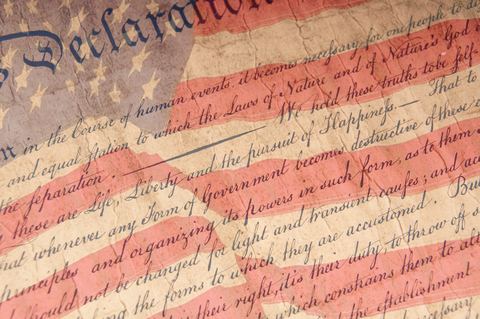Independence: Making the Right Decision in Ethical Dilemmas
 Remember your first day of high school?
Remember your first day of high school?
Chances are, you saw a lot of things you never thought you would. You probably witnessed people engaged in activities that would make your parents gasp. You might’ve felt pressured to think, “If everyone else is doing it, then it must be okay.”
As a public relations professional, you will face ethical dilemmas like this on an even grander scale. Fortunately, the PRSA Code of Ethics outlines seven professional values, which help public relations practitioners make ethical decisions. Of the seven values, PRSA defines independence as providing objective counsel to those we represent and being accountable for our actions.
What does this look like when put into practice? Here are three tips to help you put this principle into action:
1. Make Decisions Carefully.
At the PRSSA 2012 National Conference, Gerard Corbett, APR, Fellow PRSA, presented on the ethical decision-making process, which includes six steps for public relations practitioners to follow when faced with an ethical dilemma:
- Identify the ethical issue and/or conflict.
- Determine internal/external factors likely to influence your decision (financial, contractual, legal issues, etc.).
- Choose key PRSA values that apply.
- Consider parties who will be affected by your decision and your obligation to each one.
- Select ethical principles to guide your decision making (see PRSA code provisions).
- Make a decision.
2. Speak Up.
If you are ever faced with an ethical dilemma, it’s important to speak up. It might be intimidating as an intern or new professional, but make sure to confirm your suspicions through research and report them if you find them unethical. Remember, it’s still unethical if you let these kinds of violations go unreported. Choosing to be the voice of professionalism will pay off in the long run.
3. Do the Right Thing.
Sometimes the choice that is most ethical will be inconvenient or will require you to stand up for what you believe. Even though the situation might be overwhelming, it’s important to do the right thing because the most ethical choice has the best long-term benefits for you as a professional and the organization or client you are representing. The truth is that if you make an unethical decision, it will probably not go unnoticed. Compromising ethics might penalize your career and have long-term consequences for all parties involved.
Regardless of where you are in your professional career, trust your gut and avoid doing something you think may cause a breach in ethics. When all else fails, remember that independence comes with a great responsibility to uphold the values of the profession, and that you’re never alone.
Lauren Frock is a senior at The University of North Texas studying strategic communications with an emphasis in public relations and a minor in music. Frock is currently serving her second year as president of UNT PRSSA and is passionate about drinking coffee, writing, reading, traveling and meeting new people. Follow her on Twitter @frockl or visit her website, http://www.laurenfrock.com/.
